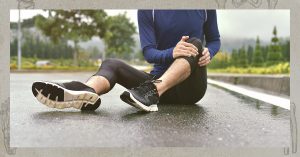
Why Do I Ache When the Weather Changes?
Grady Dixon, an associate professor in the department of geosciences at Mississippi State University, told weather.com that the problem with finding the scientific relationship between weather change and aches and pains is complicated by the fact that weather is more than just the temperature and if the sun is shining.
“When weather changes, it’s not often just one variable that changes,” Dixon said. “Is a change in temperature that’s affecting a person well-being? Or is it the change in wind or cloud cover? It’s hard to figure out which change is affecting humans, and because we’re largely relying on human perceptions, trying to quantify how these changes affect humans is another challenge.”
What we do know is that for generations, people have said their joints ache when it’s about to rain.
What Kind of Weather Makes Pain Worse?
Two factors seem to be in play when talking about the weather and pain: temperature and humidity.
Temperature and Pain
According to the Chester County (PA) Hospital, the summer heat can actually help reduce pain. That’s because warmer temperatures can help relax your blood vessels, leading to lower blood pressure. That’s one reason people may have less pain in the summer.
The other reason is purely psychological. While the correlation between cloudy gray skies and pain is hard to prove, there is no doubt that people tend to be more depressed or just in worse moods when the weather is gray. Again, the causation link between gray weather and pain is hard to prove, but we know that people are more likely to feel pain – or feel that pain is worse – when they are depressed.
According to this theory, sunny skies can help you feel better simply because they make you happier.
Additionally, the Cleveland Clinic points out that when the weather is nicer, people are more comfortable getting out and walking or doing other exercises. Some forms of pain, including some arthritis pain, are lessened when you use your muscles more. Stretching and staying limber can help reduce arthritis pain, and most people find that easier to do in warmer weather.
Humidity and Pain
The other weather factor that affects how people feel pain is the humidity or the barometric pressure. The barometric pressure literally measures how heavy the air feels on our bodies. When the humidity is high or a storm is coming in, the pressure increases.
Some studies have shown that an increase in the barometric pressure may thicken the lubrication in our joints, leading to more pain. Similar to an engine with thick, gunky oil, when our joints have “thick gunk lubricating them” they don’t move as easily and cause pain.
What Can I Do to Avoid Weather-Related Pain?
Aside from moving to a hot, dry climate, your best options for avoiding weather-related pain are to be sure to keep your blood pressure in the normal range and to stay active. Stretching and gentle forms of exercise can help reduce joint pain.
Additionally, see your chiropractor. Regular chiropractic treatment can help you keep your joints moving fluidly. Your chiropractor can also help you address seasonal or weather-related depression and show you an exercise routine that will help prevent barometric pressure pain.
Total Chiro Can Help Relieve Weather-Related Pain
Whether it’s daily aches and pains, pain triggered by weather patterns, or problems from weather-related car accidents, Total Chiro can help. We offer a full range of treatment options, from general chiropractic care to massage therapy, trigger point therapy, and much more. Contact us online or give us a call at (631) 447-2299.
